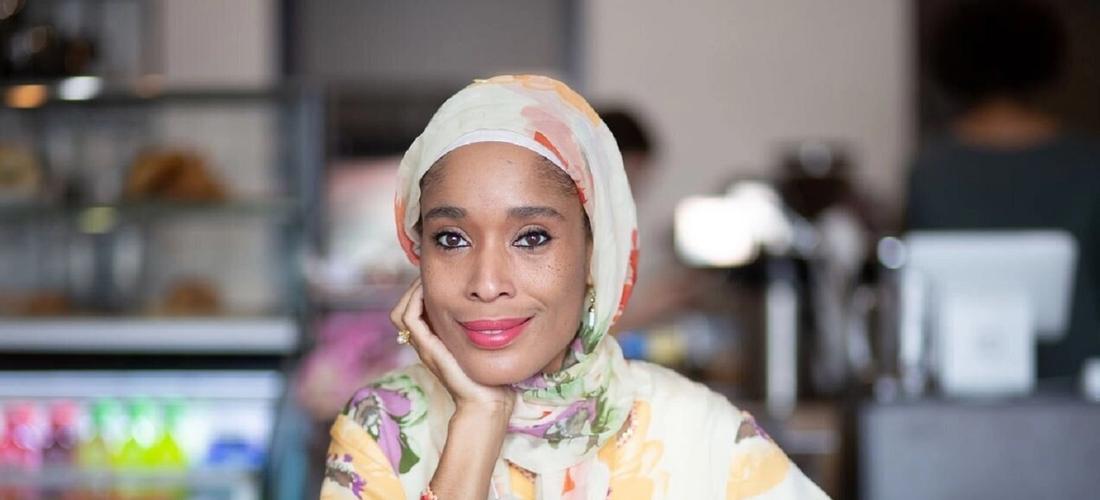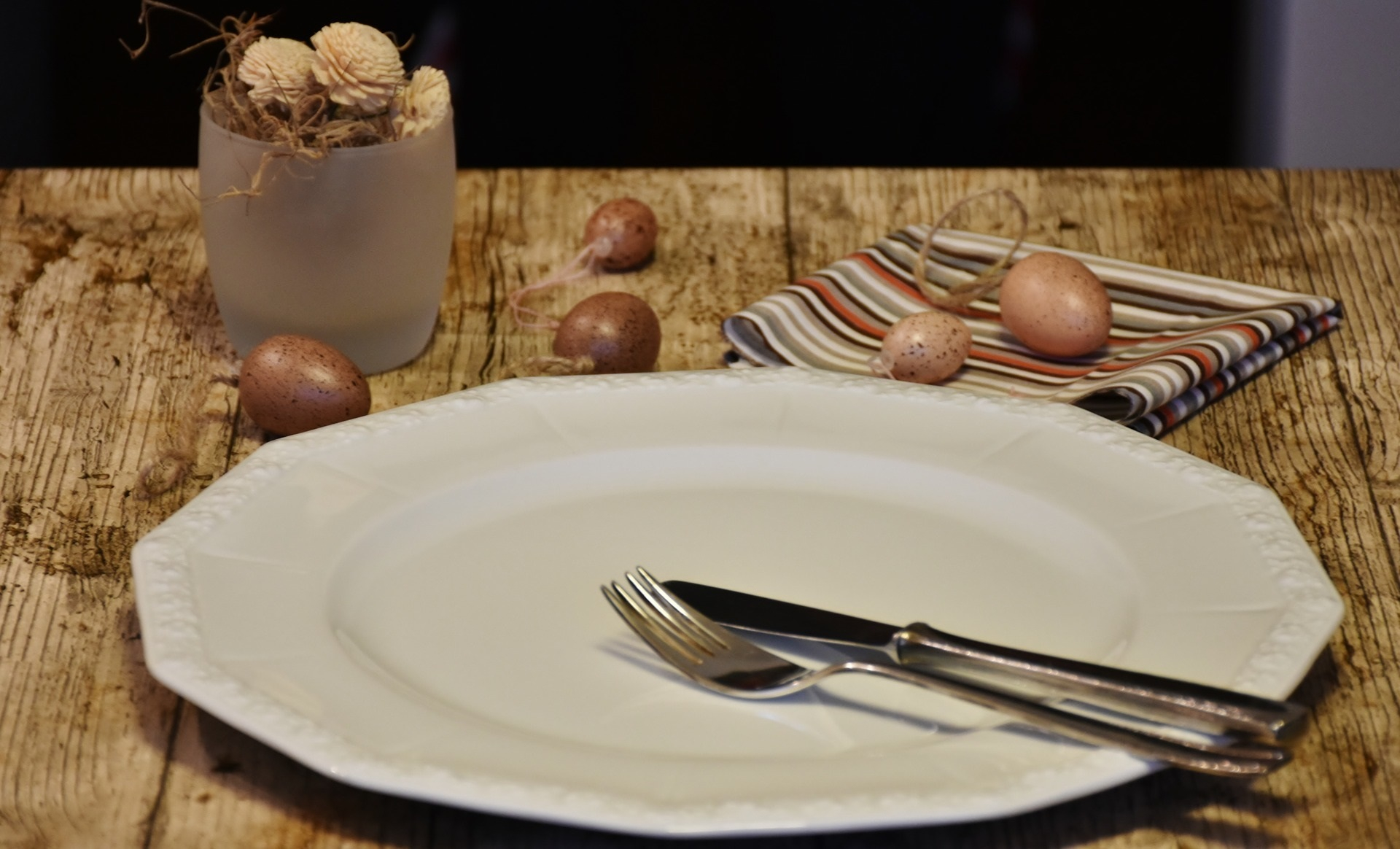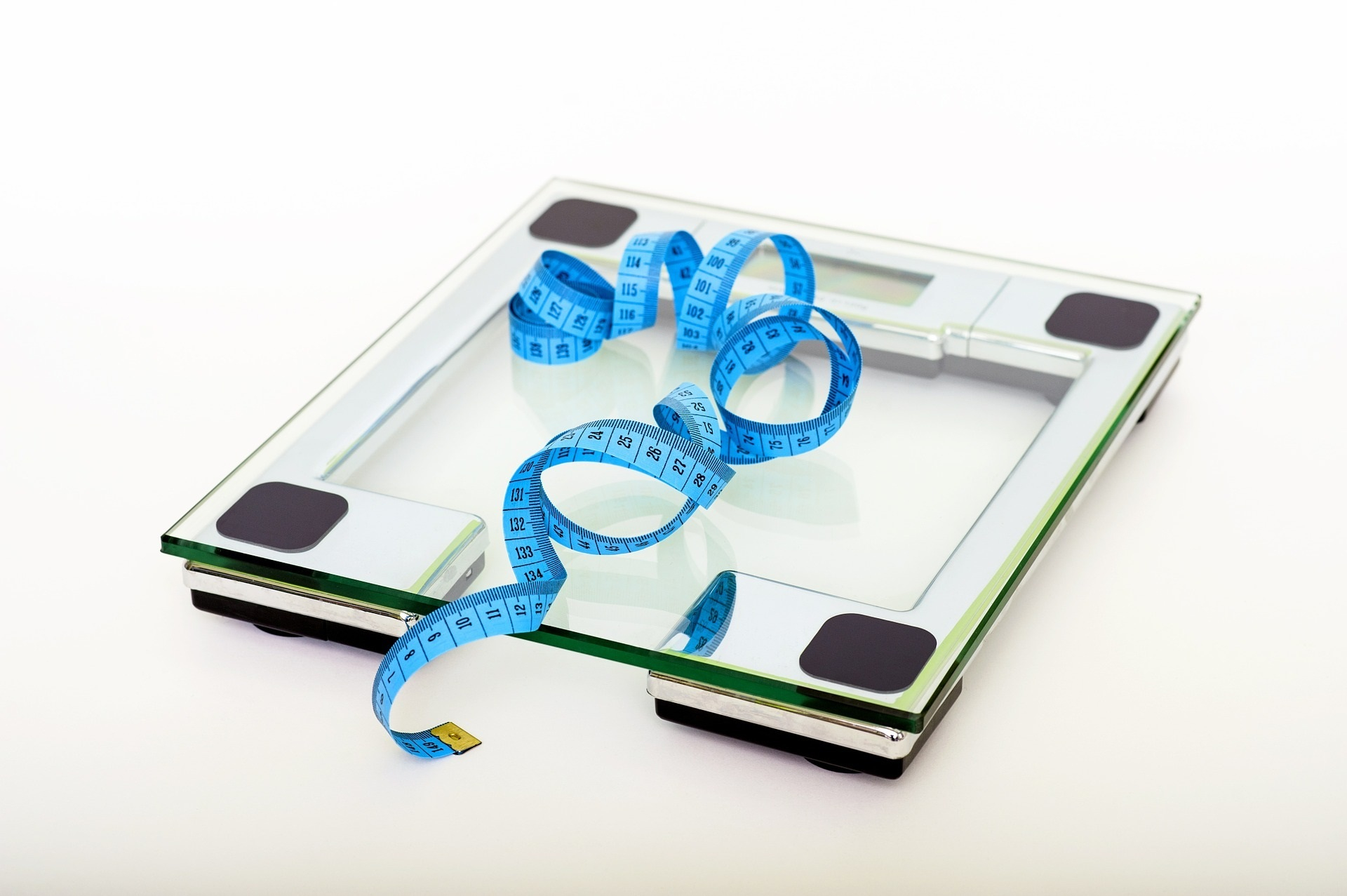Meet YaQutullah Muhammad – A Nutritionist Tackling Diet Culture & Promoting Prophetic Balance
Community
|
Aug 27, 2020
|
8 MIN READ

Nutritionist and Dietician YaQutullah Ibraheem Muhammad
Editor's Note: We've been featuring dynamic Muslim women on the blog for awhile, and we are stepping it up with our summer series dedicated to ChangeMakers, women who are living boldly and working to affect change in a myriad of ways – big and small – through their work as community organizers, artists, scientists, activists, educators, health professionals, care givers and more. We hope you are inspired by them to be the change you are searching for in your community!
I am always open about my struggle with obesity. My weight has been an issue for me since I was a teenager and continues to be a constant fight to stop the damage I am doing to my body.
Like many of the 42 percent of obese Americans, I have tried a myriad of diets and weight loss programs comprising modern diet culture. I watched my weight fluctuate with each new gimmick; I lost some of the pounds but almost always gained them back, and usually even more.
The roller coaster ride of dieting as a time-limited endeavor instead of a way of life continued, and so did the damage to my body. Just before my family self-isolated due to the COVID-19 pandemic, I went to my doctor and had the rudest awakening ever. Not only was I at my heaviest, my body was in metabolic syndrome, a cluster of conditions including hypertension, insulin resistance and abnormal cholesterol levels. I was scared like I had never been before.
My doctor informed me that increased visceral fat was most likely the reason for the majority of my conditions (including a case of nonalcoholic fatty liver), and I could potentially reverse them if I lost some weight. Yeah, okay. Been there, done that.
I went home, renewed my membership to a popular weight loss program and hit the internet. I thought I was ready to sift through the litany of advice on the best way for me to transition to a healthier weight. Boy, was I wrong. There are more weight-loss programs than ever before: Keto, low carb, 30/30, Weight Watchers—on and on it goes. I could not cope. Correction, I did not want to cope or settle for another temporary fix for what is a lifelong issue.
Obesity not only affected my health. I increasingly experienced problems with mobility that made worship difficult. I also spent years in an internal tug-of-war because of the conflicting messaging coming from Islamic teachings and Muslim culture: The mounds of guilt poured on me from the mimbar about the sin of gluttony followed by mounds of food at the community Ramadan iftar. It is not easy living a big fat Muslim life.
When quarantine hit, I had an opportunity to move away from the conflicting dieting and Muslim cultural chatter about food. Sitting in silence with myself, I realized that I spent the past 29 years gathering information about food and faith but never made any fully autonomous decisions about what I eat and how it relates to my worship. I consider Islam as a deen, a way of life, for me. But, I was not making a productive individual assessment of food, developing better eating patterns and connecting it with prophetic tradition. I kept everything seperate until I met registered dietician, YaQutullah Ibraheem Muhammad MS, RDN, LD.

YaQutullah has a bachelor’s degree in nutrition and master’s degree in Health Sciences and Nutrition. She has studied abroad at the American University in Cairo, Egypt and at the International Islamic University in Malaysia. She is also the chair of the Religion Member interest group of the Academy of Nutrition and Dietetics and a member of the Advisory Council for Physicians Committee for Responsible Medicine on Universal Meals.
YaQutullah also develops halal-certified recipes for Halal Consumer Magazine and works with her clients on improving health outcomes related to diabetes and weight management, cardiac disease, blood pressure and cholesterol management.
One of the first things that drew me to YaQutullah is the way she interlaced Islam in conversations about health and eating. Unlike with previous dieticians, I did not encounter a social chasm when I voiced frustrations about not knowing how to optimally break my fast or trying to make a permanent shift from the salt-laden, fat-rich and sugar-packed food that comprises typical suhoor (pre-dawn) and iftar (post-fast) meals during Ramadan, ironically, a month when most Muslims probably eat their least healthiest.
I asked YaQutullah to help me sift through diet culture and a few of the most-promoted eating and weight loss advice infused in discussions about food.
Diet Culture Doesn’t Teach You How to Eat

“Understand that [the word] diet simply [means] what we eat. Diet culture doesn’t teach you how to eat,” explains YaQutullah. “It doesn’t teach you the behaviors [or] lifestyle modifications, and long-term, it could set you up for eating disorders. It doesn’t explain to you the ‘why.’ It only tells you, ‘Eat this because it is better.’ You can’t generalize what is better for everyone. People have different needs.
“It can also be restrictive about food choices. Diet culture will say, ‘You shouldn’t eat this or you shouldn’t eat that.’ As Muslims, we have to look at what we eat based on prophetic traditions, not on what whoever comes up with today or fad diets.”
Adds YaQutullah, “[Diet culture] focuses on external aesthetics instead of on overall health and wellness or mindfulness in eating. It is mainly concerned with the food choices people make, often equating food with morality or character. You’re a better person if you eat this or you are not a good person if you eat that. It makes food taboo, where some food is legalized and others are not. [For example,] some people would say vegan diets are good and others that eating sugar is bad.
“It’s not that foods can’t fit. The main concern should be how often am I having it?”
Making Weight Loss a Sensible Endeavor
Prevailing conversations about weight in our obese society often create oppositional relationships between people and food. YaQutullah purports a sensible approach to losing weight for better health.
“I try to focus on healthy weight loss with my clients. I am not going to recommend the cabbage soup diet or celery smoothies to lose weight. It’s not realistic or sustainable long term. You want to lose weight to keep it off.
“Concentrate on the underlying ‘why.’ What are your goals? If you are on a program, do they help you attain those goals? Formulate sustainable lifelong changes and behaviors so [that] when it is over and you have spent however much money, you actually have the tools you need to keep the weight off,” she says.
“The primary question I ask my clients is, ‘What do you need?’ Some people know exactly what works for them while others may not. The key is to realize your why. Why are you embarking on this journey and what techniques that you can adopt long-term to meet your goals?”

Unhealthy Restrictive Eating Vs. Prophetic Traditions
So many dieting recommendations require restrictive eating, where a person severely limits or eliminates a food or food group from eating without health reasons (i.e., sugar elimination for diabetics or gluten elimination for people with celiac disease) or based on a worldview (i.e., veganism). YaQutullah explained that there are subtle differences in types of restrictive eating.
“It is important to define restrictive eating. When we think about the prophetic tradition, did not the Prophet Muhammad (saw) fast Mondays and Thursdays and the the 13th, 14th and 15th of each month? That is a form of restrictive eating.
“Define what is meant by restrictive eating,” says YaQutullah “Are we just looking at times and dates? Are we looking at restricting certain food items? Are we thinking about incorporating mindfulness and intuitive eating techniques around a certain eating approach?
“You can find long term success with certain forms of restrictive eating, such as time restricted eating with intermittent fasting. I’m going to claim the one I know works. It has the research to support it. [Other than that,] I can’t professionally [support] just eating vegetables and limiting all other food groups that will give someone the vitamins and minerals that they need.”
Says YaQutullah, “When we look at the prophetic tradition, the Prophet Muhammad (saw) had a traditional diet. But if you look at his diet and its structure, traditionally, his diet was more plant based, because they didn’t eat meat every day. If you look at the foods in the Quran and the sunnah, you will see that the majority of it is plant based, and, yes, there is milk and meat. There was balance and moderation.
“Make sure that you don’t get into a situation where you are making haram what is already halal. [For example], if you want to be vegan, that’s your prerogative, that’s you, but don’t get into social [debates] or you’re immoral or you’re character is bad because you are adopting this or that. Allah (S has already told us what is allowed.
“There is research that supports the prophetic tradition. I invite everybody to look it up. Do a little research of your own. Look at what the Prophet (saw) did to inform your decisions instead of following Joe Schmo influencer.
“Instead of eating, focus on lifestyle changes – balance, moderation, mindfulness, physical activity and the other things that are also going to help a person achieve their goals.”
“There are often underlying emotional issues that need addressing before discussing food,” says YaQutullah. “I have dealt with clients who have military experiences [who engage in] emotional eating stemming from depression or anxiety. Their mental conditions inform their decisions when they are eating. They may feel like they don’t have a lot of control over their lives but they do over their food. So the underlying issue needs to be addressed, which may make it necessary to have a mental health professional and dietician working in tandem.
“We need to expand the conversations to include other factors beyond eating. If no one else is going to do it, I will.”
Alhamdulillah, I am so glad that women like YaQutullah are committed to helping those of us who continue to barely tread water in an ocean of nutrition, health and weight loss information. I am now able to crystalize the Islamic aspect of caring for my body and eating mindfully and doing so according to the Quran and sunnah, which is more than simply halal and haram.
Food has a unique position in Islamic life that goes beyond our guts and fat cells. Because we use it (i.e., Eid-ul-Adha sacrifice, Aqeeqahs), refrain from it (fasting) or celebrate (i.e., Eid feast, Walimas) with it, the food we eat plays a vital role in our faith.
I realize that my weight, and the abundance of it, reflect a need for me to appreciate how my relationship with the food Allah has provided can impact the way I worship Him, and to improve the latter, I must develop better ways to interact with the former.
Subscribe to be the first to know about new product releases, styling ideas and more.
What products are you interested in?


